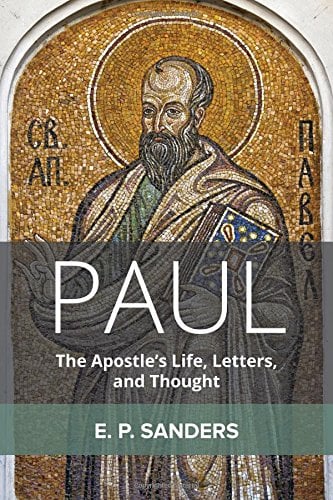pp. 194-95— PERSECUTION— some gentiles persecuted other gentiles for becoming Christians. “I believe that for leading citizens to break the ‘contract’ with the gods and goddesses of the city was a weightier issue.” (p. 194— i.e. weighter than ordinary people doing so). Secondly, gentiles may have persecuted Paul for leading people to abandon the worship of the gods and their festivals. Thirdly, Jews sometimes persecuted Jews who accepted the Christian message, as Paul himself did before his conversion. They also persecuted the Jews who proclaimed such a message. They may have seen Christianity as a rogue cult damaging Judaism and its honor. Some Jews may also have thought that Rome would not like an eschatological cult that preached the near end of the present order. In Thess. there is clear evidence of the first and third kinds of persecution (1 Thess. 1.6-7; 2.14 and 2.16). More time is devoted to suffering and persecution than to any other topic in this letter. It is what made Paul most anxious about these new converts.
pp. 196-97— He suggests that the term heathen should be avoided, but we should hang on to pagan. It does not mean an irreligious or unreligious person. It means someone who is neither Jewish or Christian in belief. Not all pagans however were polytheists either— the Stoics were monists (believing everything was part of the one reality with the divine spark), and there were philosophical monotheists— Stobaeus—4.7.61 quoting Diotogenes from 3rd to 2nd century C.E.. He quotes Minucius Felix from the 2nd-3rd century A.D. who gives evidence that many pagans of the Roman professional class were fed up with ancestral religion and sought to combine a monotheistic philosophy with as much of the classic heritage as possible (Sanders is quoting Frend’s The Rise of Christianity pp. 291ff. on this point). But most pagans Paul encountered were polytheistic.
p. 198— “pagan religion provided solemn ceremonies, numinous experiences, civic solidarity, the entertainment of a procession, good food, and sometimes the further entertainment of athletic contests.”
p. 200– Only Jews did ‘holocausts’ a whole burnt offering. For the Greeks a sacrifice to a deity was a time for a feast, one of the rare times someone got red meat. To abandon paganism meant cutting oneself off from local culture and the pleasures of a fellowship or family meal.
p.201— There were no required theological opinions in the Greco-Roman world, but one could be accused of atheism as Socrates was, or more likely treason (i.e. being unpatriotic and bad citizens for not supporting the local religion/politics which was intertwined. Religion and politics went together.
p. 202— “Two centuries later Rome did not mind if a Christian muttered ‘I don’t believe in this’ while they sacrificed to Jupiter, indicating loyalty to the Empire. But they had to sacrifice.” [Decree of Decius January 250 A.D.]. The issue was loyalty to custom and practice. And the disloyalty was to the city-state, not to the Empire which was viewed as a nebulous entity into the third century A.D.
The problem for gentiles was that if they converted to Christianity they did not get the exemption from persecution that Jews had, because they were not Jewish. But if they converted to Judaism and also embraced Christ, then they were in trouble with non-Christian Jews.
p. 203— Thus Paul’s Gentiles were cut off from both paganism and Judaism. “They had neither the pleasures and benefits of pagan society, nor the comfort and satisfaction of Jewish society within the pagan world. They belonged to no established category; religiously they were nothing.” “Beginning in the 2nd century…Rome began to require loyalty to the empire and the emperor.” [Exactly, which is why Sanders totally ignores all the recent rhetoric about Paul responding here there and yonder to the Imperial Cult. See the critique book by Modica et al.]
p. 204– It is extremely unlikely that any of Paul’s converts were judiciously executed. We know who was martyred as Christians honored their names— Stephen, James Zebedee, James the brother of Jesus [and Antipas in Rev]. Persecution then would be ad hoc and involve ostracism, harassment, verbal abuse, accusations before magistrates, possibly light beatings with rods, possibly brief incarceration. Acts 17.5-9 adequately describes what happen in Thess.
p. 206—Paul’s theology included the expectation that Christians would be persecuted. Just as Jesus did, just as the apostles did, so ordinary Christians should expect this, as part of the imitation of Christ.
p. 209— Paul’s message during the early part of his career was not that his converts would be raised after they died, “but that Jesus had already been raised, and that he would return while Paul’s hearers still lived. Death surprised them.” [There is nothing to suggest that death surprised Paul. It did surprise some Thessalonians]. Sanders says Paul never gave up the expectation that the Lord’s return was imminent (see Rom. 13.11f. his last letter says Sanders).
pp. 210-11—Sanders argues that Paul got 1 Thess. 4.15-17 from the Jesus tradition, specifically Mt. 24.30f. and Mt. 16.27f. And he takes it that he got from Jesus that his return on the clouds would be imminent, while most of Paul’s contemporaries were still alive. He thinks the stopping working is because of the eschatology— assumed imminence.
p. 214– he accepts John Collins’ distinction between eschatology and apocalyptic and the scene of Christ coming on the clouds can be called apocalyptic eschatology, but most of his eschatology is not apocalyptic, not based on visions.













